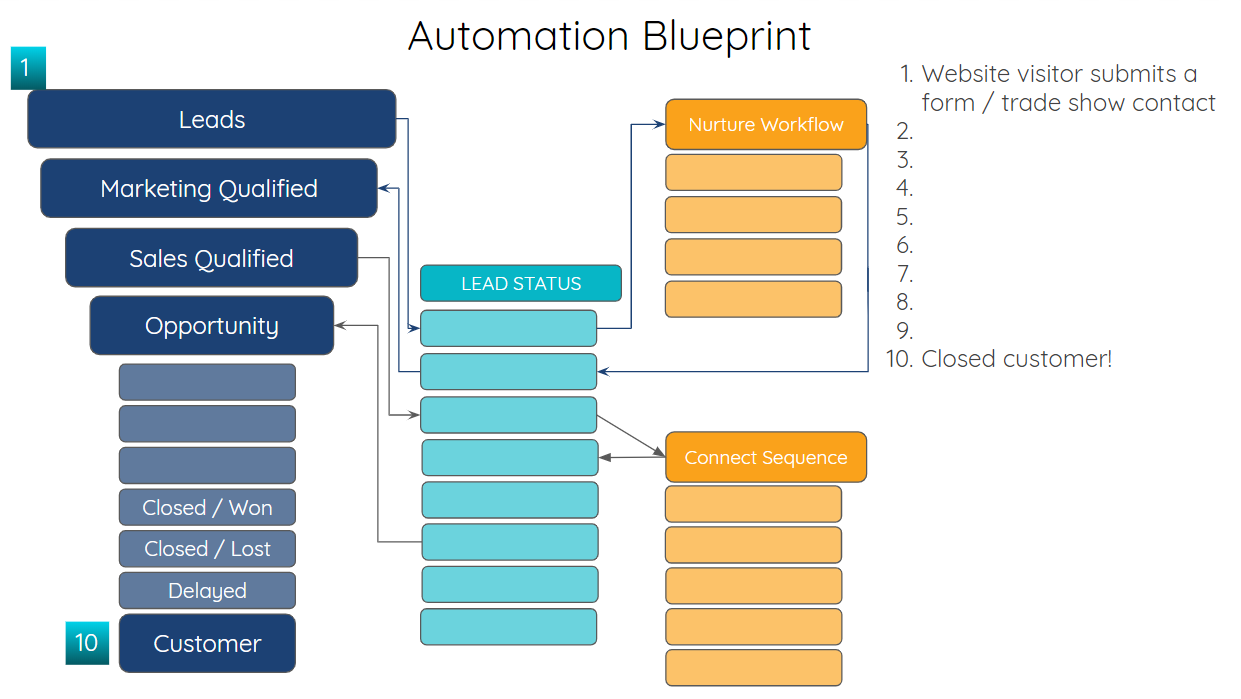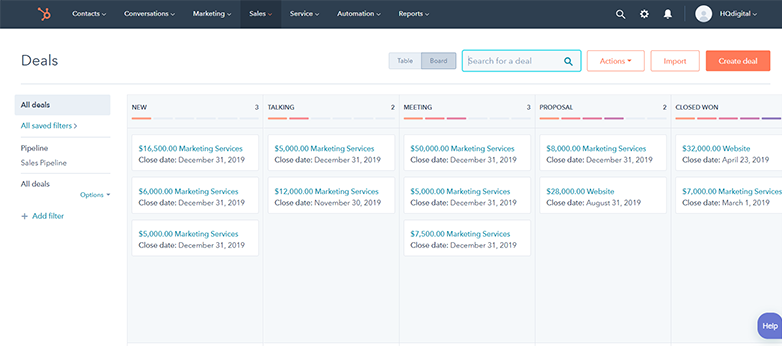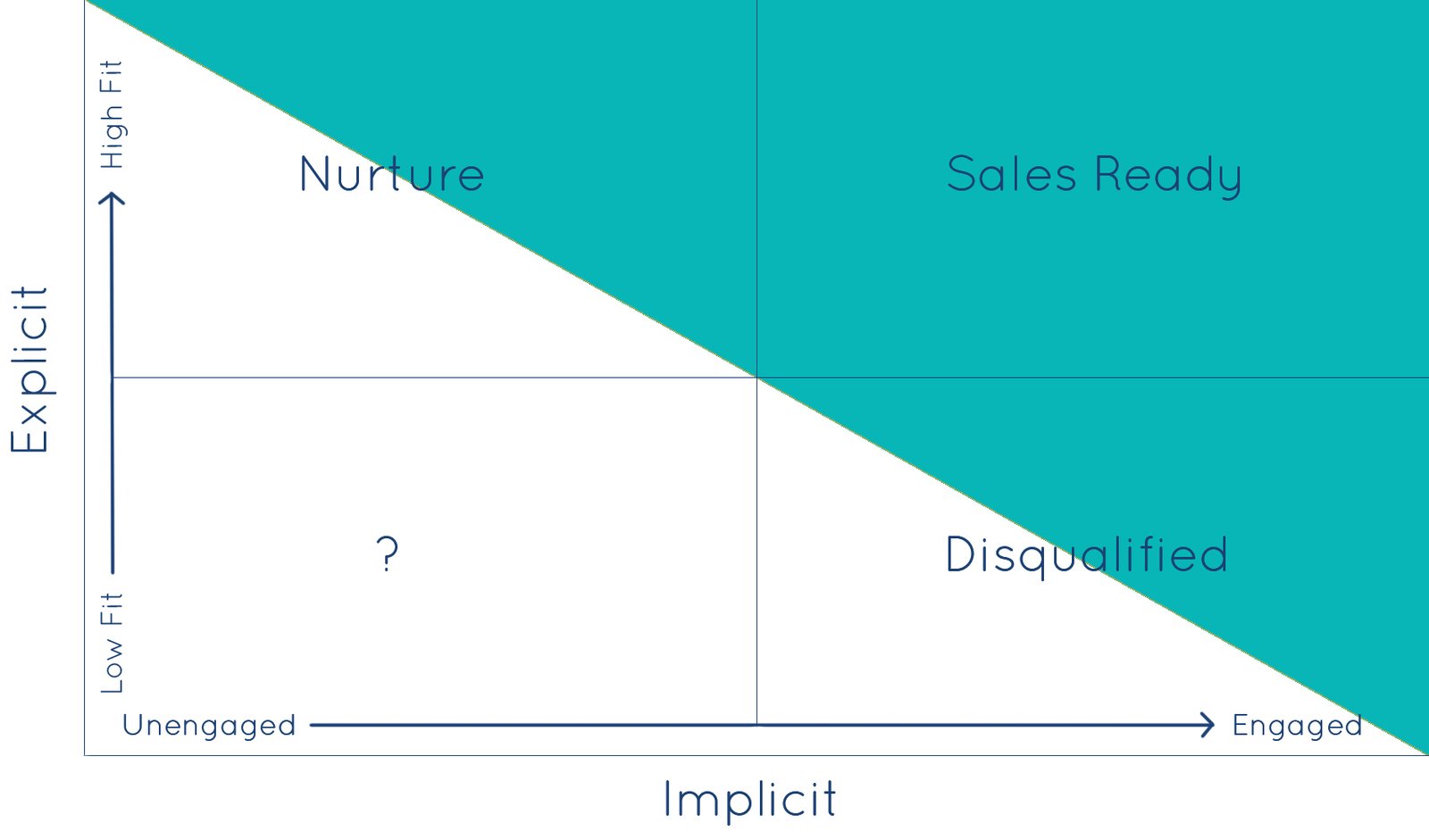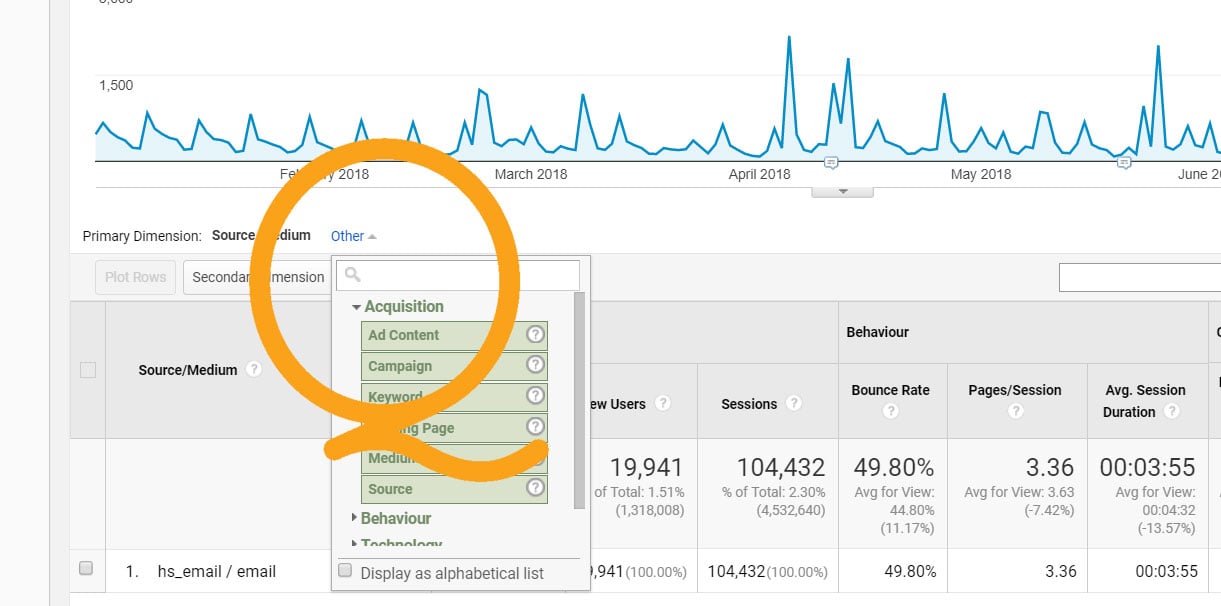
It's no secret that businesses worldwide are adopting technology and AI to advance their goals. Organizations that haven't adopted core business technologies are finding themselves, often sheepishly, on the cusp of falling behind.
HubSpot, the all-in-one customer platform, is quickly becoming the go-to solution for businesses across many industries (and especially in tech, telecom, and manufacturing). From small startups to global enterprises, organizations are increasingly adopting HubSpot - and for very good reasons.
In this post, we’ll explore HubSpot's rising popularity with businesses in 2025.
1. All-in-One Platform that Scales with Your Business
One of the biggest reasons businesses are adopting HubSpot at such a high rate is its all-in-one structure. Instead of having juggling multiple software tools for marketing, sales, customer service, content management, HubSpot offers a unified platform with everything under one roof.
The HubSpot product ecosystem includes:
- Marketing Hub: For campaigns, lead generation, automation, and analytics.
- Sales Hub: For pipeline management, prospecting, deal tracking, and automation.
- Service Hub: For ticketing, customer support, and feedback collection.
- CMS Hub: For building and managing secure, optimized websites.
- Operations Hub: For integrating and syncing data between platforms.
HubSpot's all-in-one structure makes it easier for teams to collaborate, ensures data consistency, and eliminates silos across departments.
2. User-Friendly and Intuitive Design
Nothing frustrates me these days like buggy or cumbersome technology. Many sales and marketing software platforms are clunky and require months of training to even begin to use it effectively. Some CRMs are particularly notorious for this.
HubSpot has made a name for itself by offering a user-friendly, intuitive interface that non-technical users can learn quickly and technical users can master easily. It is consistently ranked in the top of the Gardner quadrant and is beloved by its users.
Whether it’s building a landing page, setting up a workflow, or reviewing a deal pipeline, HubSpot prioritizes ease of use. This accessibility empowers marketing and sales professionals to focus on results instead of struggling with software all day.
3. Powerful Automation Tools
Automation is the key to scaling modern business operations. HubSpot delivers robust automation capabilities without overwhelming users.
HubSpot's tools let marketers:
- Automate lead nurturing workflows based on user behavior
- Score leads to prioritize sales outreach
- Trigger personalized emails or internal notifications
In HubSpot Sales Hub, you can:
- Set up sequences for follow-ups
- Automate tasks like deal creation and lead assignment
Automation in HubSpot helps teams work better, freeing up time for higher-value strategic work while providing assurance that all leads are followed up with in a timely and engaging way.
4. Seamless CRM and Customer Data Integration
At the heart of HubSpot is its free CRM, which captures contact and company details, tracks interactions, and logs all communication. Unlike traditional CRMs that are expensive and difficult to customize, HubSpot’s CRM is free to start, simple to configure, and scales with your business.
The CRM syncs seamlessly with HubSpot’s marketing, sales, and service tools, giving teams a unified look at the customer. This customer-centric approach improves personalization, increases conversion rates, and drives better decision-making.
5. Inbound Marketing and Content Capabilities
HubSpot is widely recognized as the pioneer of inbound marketing—an approach that attracts customers through helpful content, not pushy ads. This methodology is built into the DNA of the platform.
With HubSpot, businesses can:
- Create blogs and landing pages that are optimized for search
- Capture leads with forms, CTAs, and gated content
- Segment audiences and deliver tailored content experiences
The platform also supports dynamic content, which lets you personalize marketing messaging to users based on their lifecycle stage (customer vs. lead), industry, or even behavior, such as a new vs. returning visitor to your website.
6. Advanced Reporting and Analytics
One of the greatest challenges in marketing and sales is proving positive ROI. HubSpot's analytics and reporting features enable businesses to track performance across the entire customer journey, from a person's first website visit to deal closed and beyond.
Dashboards can be customized by role—executives can track high-level KPIs, while marketers can dive into campaign-level performance. Integration with tools like Google Analytics expands HubSpot's data capabilities, allowing for even deeper insights.
7. Flexible Pricing for Growing Teams
Affordability is another reason HubSpot is gaining traction. The platform offers free tools for small businesses and startups, as well as tiered pricing for growing companies and enterprises.
With flexible packaging, businesses can adopt only the tools they need and expand as their needs evolve. This modularity helps businesses stay lean without sacrificing functionality.
8. A Future-Ready, AI-Powered Platform
HubSpot has increasingly embraced AI to help businesses make smarter, faster decisions. With AI tools for content generation, predictive lead scoring, forecasting, chatbots, and reporting, HubSpot is building the infrastructure for the next era of digital marketing and sales.
The recently launched HubSpot AI suite allows users to:
- Automatically draft blog posts, emails, and social media content
- Generate reports and dashboards with natural language prompts
- Predict outcomes and make data-driven decisions with ease
This blend of automation and intelligence keeps businesses ahead of the curve in a competitive digital landscape.
Final Thoughts: HubSpot Is More Than a Tool—It’s a Growth Platform
The reasons businesses are adopting HubSpot today are clear: it simplifies operations, drives alignment, scales with growth, and empowers teams with automation, data, and content tools - all in one place. It’s not just about software; it’s about enabling real, measurable growth.
In a world where customer expectations are higher than ever, companies need tools that help them deliver better experiences at every touchpoint. HubSpot is doing exactly that - and that’s why more businesses are joining the HubSpot ecosystem every day.








